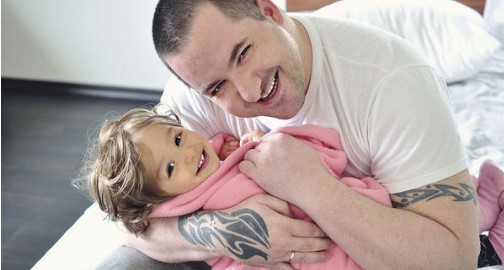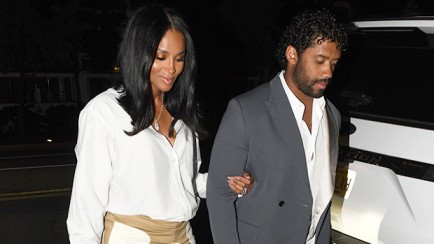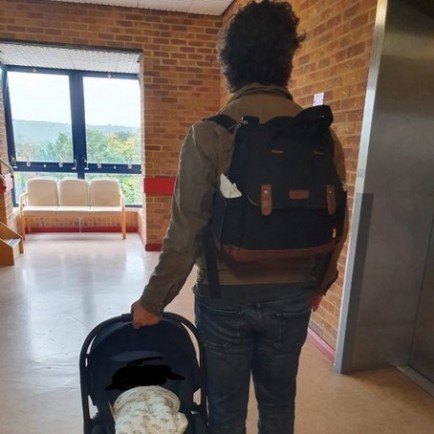If you’re like most expectant or new dads, you probably already have some ideas about what it means to be a father. Those ideas are rooted in your experiences with your own dad and in what you believe society expects of a male parent. The more you examine and understand your unspoken expectations of fatherhood, the better chance you have of becoming the parent you want to be. Perhaps the biggest myth of all is that there’s only one definition of a “good dad”. But fatherhood isn’t fixed. You have the power to create your own version to meet your needs and the needs of your family, and you can do it over time. From pregnancy and throughout the first years of parenthood, you’ll change and develop your own unique identity as a dad. Here are five other commonly held beliefs and the truth behind them.
Myth 1: Only the expectant mum’s feelings are important
Your partner’s changing body, and the focus on the birth itself, make it easy to think that her feelings are the only ones that count. Your concern for her physical and mental health is important now and after the baby is born, but so are your own feelings. It’s easy when you’re a dad-to-be to talk excitedly about the positives of becoming a father. It’s much tougher to give voice to the equally important, and understandable, feelings of fear and worry. You may wonder, will I faint at the birth? Will there be medical complications? (Our top tips for labour partners may help if you’re nervous about the birth.) After our baby is born, how will our relationship change? Can I pursue my career and be the dad I want to be? Your partner needs to hear your feelings. You may feel you have to keep your fears about pregnancy and fatherhood to yourself because you don’t want to add to her worries. But don’t be afraid of burdening her. Most women want and need this kind of interaction, and they know that becoming a dad brings challenges. Sharing your fears with your partner will bring you closer. You can also seek out other expectant dads, read books about becoming a father, or chat to other dads in BabyCentre’s community. Give yourself permission to express both your positive and negative emotions.
Myth 2: Newborns don’t really need their fathers
The intense connection between your partner and your new baby can leave you wondering whether your baby really needs you. You may feel especially shut out if your partner is breastfeeding your baby. Rest assured, you are an essential part of your newborn’s life. Being with you is comforting and soothing to him. To bond with your baby, hold, rock, and chat to him. Wait until after a feed, though, so you’ll have his full attention. Taking over after a feed also gives your partner a chance to recoup her energy after breastfeeding. You can help to feed your baby if your partner expresses milk into a bottle, or if you decide you want to go with formula feeding. And you can help your baby indirectly by doing chores around the house. This will allow your partner more relaxed time with your baby. Remember, you make a difference to your whole family.
Myth 3: Men don’t know how to care for young children
This is a great untruth that keeps dads from having a strong relationship with their babies. It also causes unnecessary anxiety for new mums who worry that their partners aren’t capable of handling newborns. Aside from breastfeeding, there’s no reason that a man can’t be a child’s primary caregiver. Parenting is learnt on the job by everyone, mums and dads. If you spend time with your baby, you’ll become sensitive to his needs.
Myth 4: Men who focus on their children can’t pursue a career too
This is no more true for men than it is for women. Parents juggle work and parenthood every day, and more men are opting to be the stay-at-home parent. Being a good dad is a significant accomplishment in life. The UK government’s provision for parental leave is one way in which dads are being increasingly recognised.
Myth 5: You are destined to be just like your own father
Your dad will take on new significance when you become a father. It’s natural to think about your own childhood and believe that, for better or worse, you’ll follow in your old man’s footsteps. Your own dad needn’t be your primary role model for parenting, though. He is just one influence on what kind of father you’ll become. Look to other people who’ve nurtured you over the years. Think of the teachers, colleagues, friends, uncles, brothers, and so on, who’ve helped you. Use those experiences to create your own identity as a dad. If you look at different countries around the world, you will see that there is no one consistent model for fatherhood. Different cultures approach fatherhood in a variety of ways. In fact, in some African cultures, “father” is a group of men, not an individual. The idea of a “good dad” is something that changes, depending on cultural, social and economic pressures. It’s down to you and your partner to make choices that are best for your family. Try to see fatherhood as a role you grow into as you explore the possibilities. You can take the positives from your own family history and add to them in new ways.
Original article: https://www.babycentre.co.uk/a539837/five-myths-of-fatherhood



























Comments